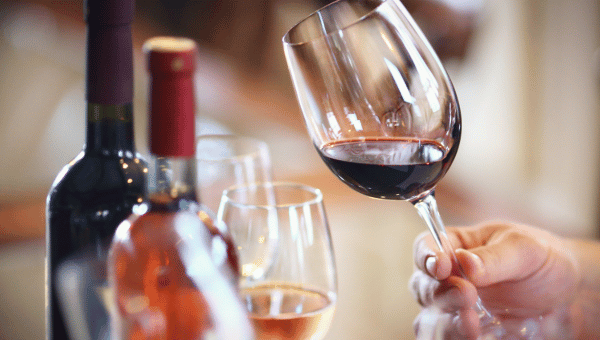25 April 2025
Is wine gluten free?
Wine is very likely the healthiest of all the alcohols! It can provide you with heart-smart antioxidants and some say it reduces stress too. But what about whether wine contains gluten?
Many spirits are made out of grains: barley, oats, rye, wheat, etc. These alcohols are potentially dangerous to those who suffer from celiac (also spelt celiac) disease or gluten sensitivity. For those who don’t know what these are:
- Celiac disease is an autoimmune disorder that causes intestines to be “hyper-sensitive” to gluten, a protein found in wheat and grains. This hypersensitivity leads to digestive problems, migraines, behavioural issues, fatigue and more.
- Non-celiac gluten sensitivity is similar to celiac disease, except it’s more of an allergy than a disorder. Those with this form of gluten sensitivity experience similar side effects when exposed to gluten, though the symptoms are milder.
If you have either of these two health problems, you’ve no doubt have had to avoid beers as they’re made from grains. Whilst most spirits are considered gluten free, including vodka, gin, rum, tequila, and whiskey, it’s important to be aware of flavoured spirits, as flavourings or additives added after distillation could potentially contain gluten.
But what about wine? Is wine gluten free?
In this article, you’ll learn everything you need to know about whether or not wine is safe for the gluten-intolerant to drink…
Wine is made from grapes, not grains. Almost all of the time, wine is considered gluten free as grapes used to make wine are naturally gluten free, and the fermentation process doesn’t involve gluten.
However, there are some very rare situations where winemakers will add ingredients to the wine that may contain traces of gluten. For example:
- Sealant
A special sealant is used in the oak barrels in order to prepare them for ageing. This sealant helps to reduce the risk of leaks. However, it may contain traces of gluten, thanks to the fact that it’s a sort of paste made from flour.
Thankfully, this practice is VERY uncommon – most barrels are now sealed with paraffin wax (see later for further advice).
- Fining
To “fine” wine means to clarify and stabilise it, eliminating any particles from floating in the liquid. Some rarely used fining agents do contain gluten, which may mean that wine is exposed to the protein. However, egg proteins, isinglass or bentonite (an inert clay) are the most commonly used fining agents, so it’s highly unlikely that there is gluten in your wine.
However wine is almost always gluten free
Both of these methods do expose your wine to contact with gluten, but the truth is that the amount of gluten in your wine is so small as to be almost negligible.
You see, in order for a wine to be considered truly “gluten free”, it needs to contain less than 20 parts-per-million of gluten. Exposure to a sealant or fining agent would produce far fewer than 20 parts-per-million, making wine as safe to drink as bottled water.
This means that wines are as gluten free as you could ask for!
Is red wine gluten free? Absolutely. Is white wine gluten free? You bet. Is rosé wine gluten free? Of course it is!
Be careful with wine coolers, flavoured wines and wine cocktails
However just remember this: Wine coolers, some flavoured wines and wine cocktails may not be gluten free due to added flavourings, colouring or malt ingredients. Always read the labels.
If you’re drinking regular wine however there is almost ZERO risk of your wine being exposed to any form of gluten, so you can enjoy a glass of wine even if you are highly sensitive to gluten.
Even if you have to cut all or most other forms of alcohol, wine is almost always perfectly safe to drink!
An extra cautious step
Remember, there are only two ways for your wine to be exposed to gluten (fining and sealing agents). If you want to be 100% sure your wine is gluten free, buy young wines that have not spent any time ageing in a barrel.
Look for inexpensive wines as ageing in oak barrels is a pricey process, and will raise the cost of any wine. Cheaper wines have often not been oak aged, and thus haven’t been exposed to any sealants in the barrels. Here is a red wine we’d recommend that hasn’t been oak aged, so absolutely nothing to worry about!
White wines tend to be lighter, and only a few sit in barrels to age. Young white wines or rosés are as gluten free as it gets! Here’s a great white and rosé we’d recommend – all of our wines are certified organic and almost always vegan too.
And here’s a popular gluten free beer that’s organic too.










